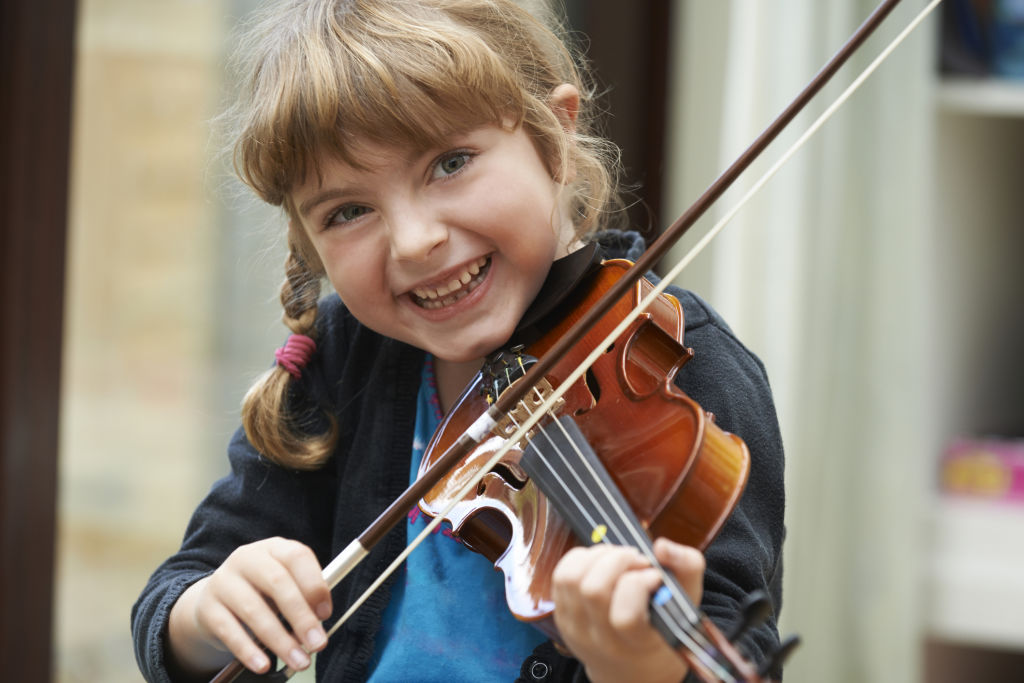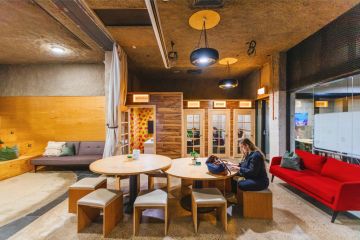Life beyond the classroom

Inside and outside the classroom, music and technology offer students opportunities to develop new skills and interests and to learn the value of persistence. Music is an essential part of school life at Shelford Girls’ Grammar. Jean McQuarrie, head of music, has been with the school for the past 25 years and has seen many of her former proteges find a full time career in the world of music and performance.
“Some of them have performed with the Melbourne Conservatorium orchestras, some have worked as composers with the ABC and one student just got her first commission to compose,” says McQuarrie. Extra-curricular music is a popular choice for many of the girls at Shelford. Around 73 per cent of students play a musical instrument and most are also part of an ensemble and spend hours before and after school perfecting their musical skills.
“We have choirs, harmony ensembles, string orchestras, a concert band, guitar ensemble, brass ensemble, jazz ensemble, percussion ensemble and flute ensemble. If a student comes to me and is interested in being part of a rock band or an Irish band, we will form an ensemble so they can pursue that interest,” says McQuarrie. The annual school musical also involves many extra-curricular hours with the junior school and senior school performing in alternate years. This year the junior school performed Annie and next year the senior school students will present Mary Poppins. “The students sing and act and hold positions of responsibility in terms of stage management, sound and lighting,” says McQuarrie.
“These experiences don’t only enrich their musicianship but they lead to girls forming cross-year level friendships and the older girls help the younger girls. Music helps with the students’ academic rigor and discipline, and it presents them with the challenge of being brave enough to perform publicly which is a valuable acquired skill.” At Preshil in Kew, robotics and technology are popular extra-curricular choices for students, with their interest encouraged from early primary school years. Younger children enjoy spending lunchtimes and recess in the “Fish Bowl” – a bright, modern area equipped with a 3D printer, green screen, video and editing software, LEGO and coding programs. “The Fish Bowl is a space where children can explore and be curious,” says Natalie Jensen, assistant principal at Preshil.
“Teachers take on projects at lunchtime with groups of children and they’ve used 3D printing to make pieces of jewellery and phone cases and they’ve made films. We get people from the community or parents who are specialists to work with the children – one person worked for Channel 7 and has been making films with the kids.” Younger students use the Cubico coding program that was developed by specialists in early childhood education, computer engineering and computer linguistics. It helps them understand basic concepts of coding such as command sequences, iteration and looping and conditions and to improve logical thinking and problem-solving skills. Older children can get to grips with Arduino programming, which is a more involved introduction to robotics.
“All our classrooms are open at lunchtime, so children can self-initiate activities and projects at that time,” says Jensen. “The focus in all these robotic and technology projects is more on the process than the end result. They learn to design, test, undo something, re-do it and try again, so it’s good for building resilience. “They often try something and when it doesn’t work, they look at it through a different lens to see what they can change. The students will discuss projects together and help each other problem-solve and that continues to encourage their natural curiosity.”
We recommend
We thought you might like
States
Capital Cities
Capital Cities - Rentals
Popular Areas
Allhomes
More







